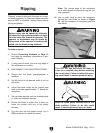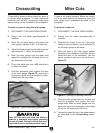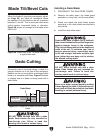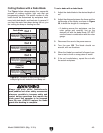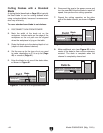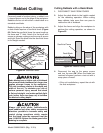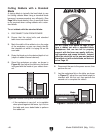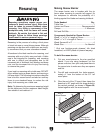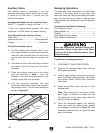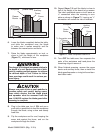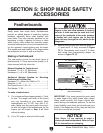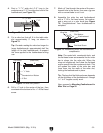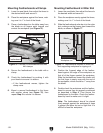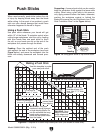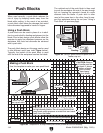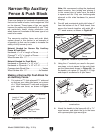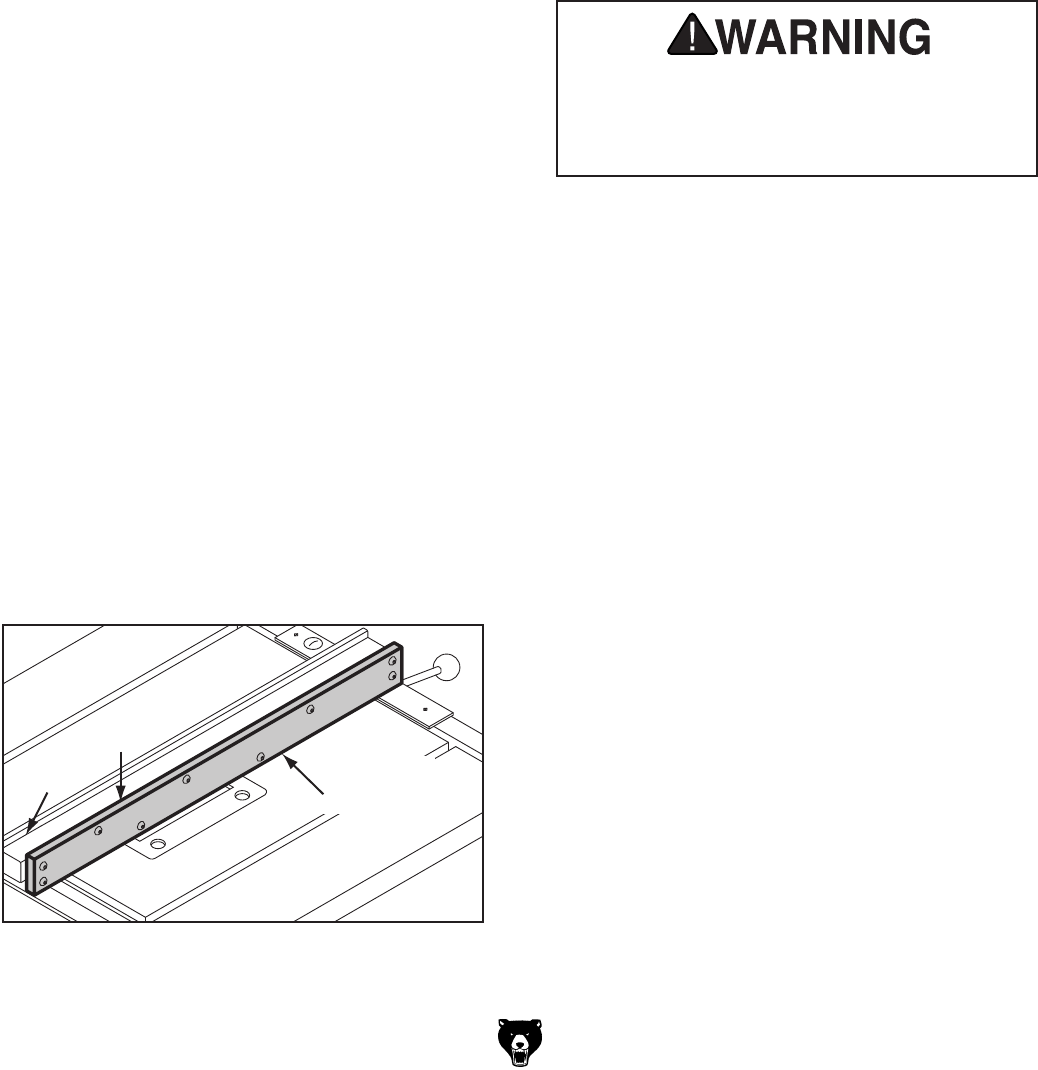
-48-
Model G0690/G0691 (Mfg. 11/10+)
Auxiliary Fence
The auxiliary fence is necessary if you are
resawing a workpiece that is taller than it is wide.
It should be no less than
1
⁄2" shorter than the
board to be resawn.
Components Needed for the Auxiliary Fence:
Wood*
3
⁄4" x (Height) x Length of Fence ............1
* Only use furniture-grade plywood, kiln dried
hardwood, or HDPE plastic to prevent warping.
Tools Needed for the Auxiliary Fence:
Table Saw ..........................................................1
Jointer and Planer ....................... Recommended
Clamps ............................................... 2 Minimum
To build the auxiliary fence:
1. Cut the auxiliary fence board to size. If you
are using hardwood, cut the board oversize,
then joint and plane the board to the correct
size to make sure the board is square and
flat.
2. Unthread the fence face mounting hardware
and remove the fence face from the fence
assembly.
3. Place the auxiliary fence next to the fence
face you removed in Step 1, mark the
location of the nine mounting holes on the
auxiliary fence, then drill the holes.
4. Use the mounting hardware that had
previously attached the fence face to attach
the auxiliary fence. The end result should be
similar to Figure 69.
Figure 69. Auxiliary fence.
Fence
Facing
Fence
Body
Auxiliary
Fence
To perform resawing operations:
1. DISCONNECT SAW FROM POWER!
2. Remove the standard table insert and the
blade guard assembly.
3. Install a ripping blade, install the riving knife,
lower the blade below the table, then install
the optional Model T20916 zero clearance
table insert.
4. Attach the auxiliary fence and set it to the
desired width.
Note: When figuring out the correct width,
don't forget to account for blade kerf and
the inaccuracy of the fence scale while the
auxiliary fence is installed.
5. Place the workpiece against the auxiliary
fence and slide the resaw barrier against
the workpiece, as shown in Figure 70. Now
clamp the resaw barrier to the top of the table
saw at both ends.
You may experience kickback during this
procedure. Stand to the side of the blade
and wear a full face shield to prevent injury
when resawing.
Resawing Operations
The table saw motor is pushed to its limits when
resawing. If the motor starts to bog down, slow
down your feed rate. Motor overloading and blade
wear can be reduced by using a ripping blade.
Ripping blades are designed to clear the sawdust
quickly.
Components Needed for Resawing:
Zero-clearance Insert .........................................1
Ripping Blade 10" ...............................................1
Clamps ...............................................................2
Shop Made Auxiliary Fence ...............................1
Shop Made Resaw Barrier .................................1



